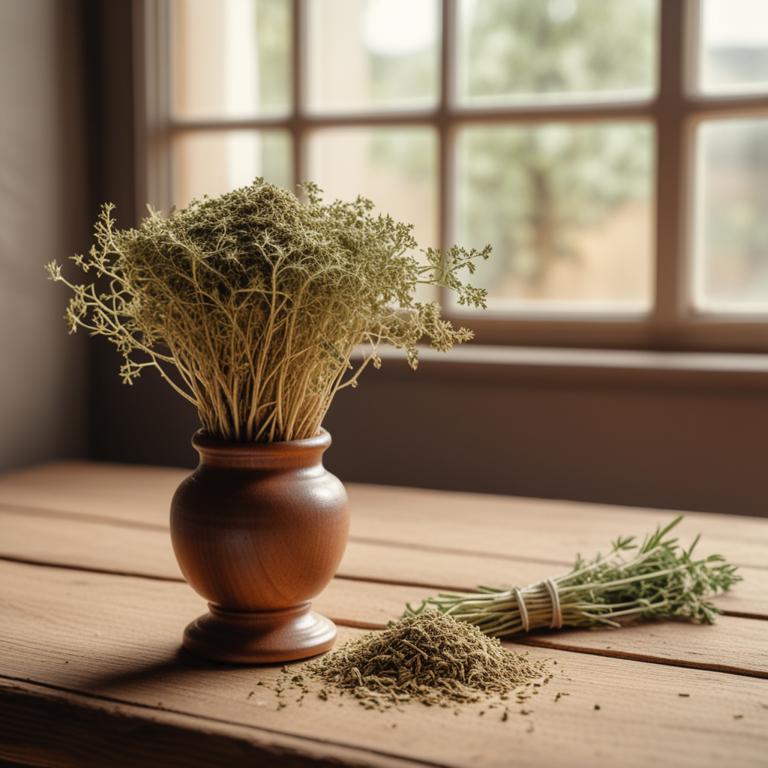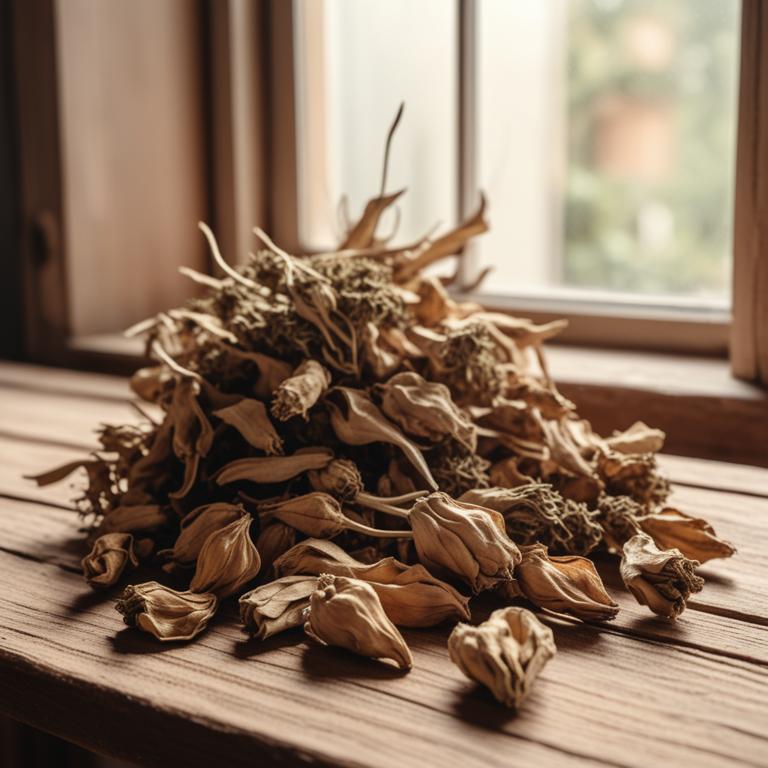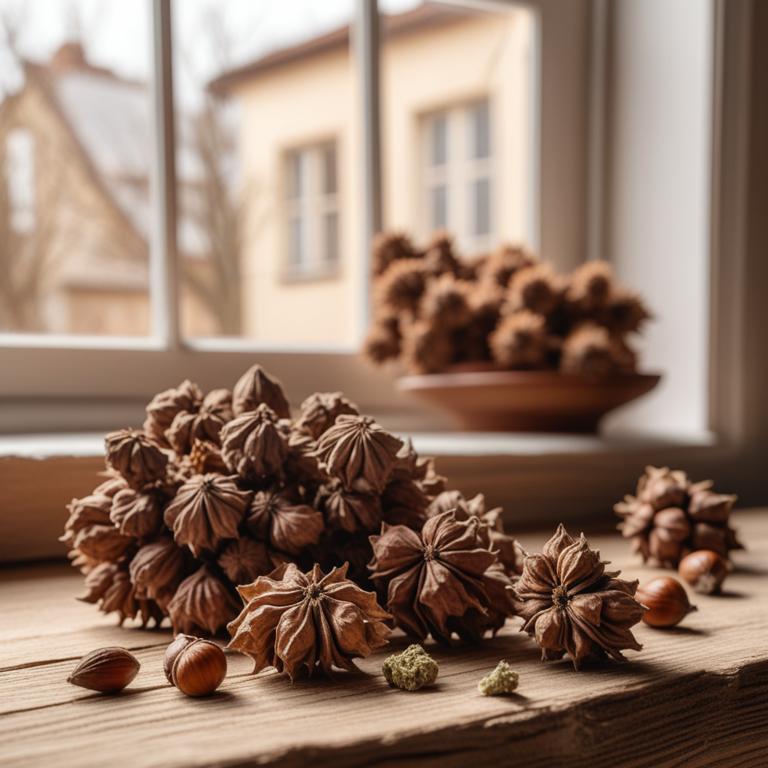Updated: Dec 1, 2024
Heartburn and Digestive Health: Medicinal Herbs and Preparations
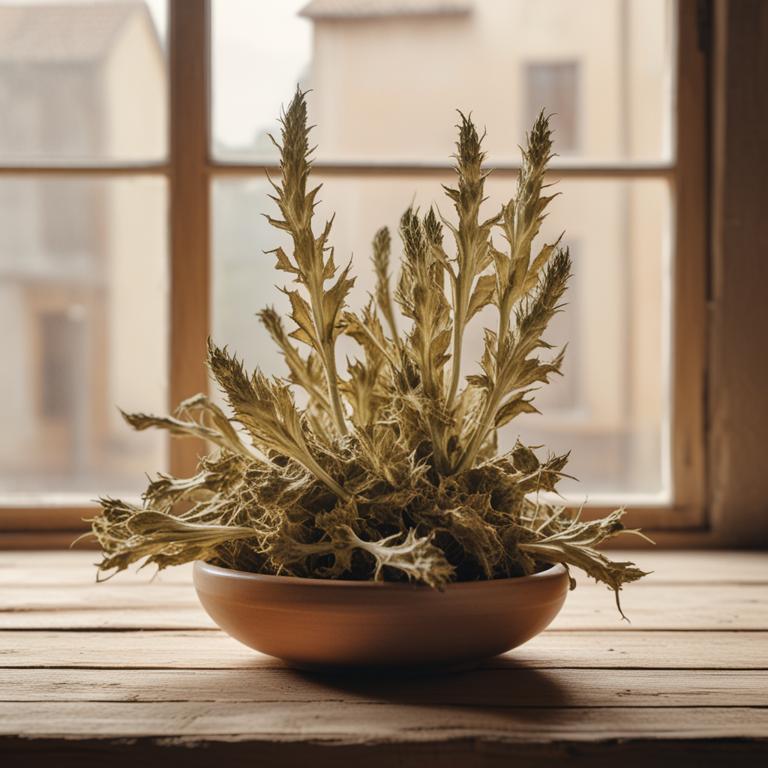
Heartburn is a common problem where stomach acid flows back up into the esophagus, causing a burning sensation in the chest.
It can be uncomfortable and disrupt daily life, making it hard to eat, sleep, or even enjoy favorite foods. Heartburn is usually caused by eating too much, eating too quickly, or lying down after a meal. It can also be triggered by certain foods, such as citrus fruits, tomatoes, and spicy or fatty foods. Herbal remedies can help soothe and calm the digestive system, reducing heartburn symptoms.
One of the most effective herbs for heartburn is licorice root, which has anti-inflammatory properties that can help heal the esophagus and reduce acid production. Another herb, chamomile, is known for its calming effect, which can help relax the muscles in the stomach and reduce heartburn symptoms. To use herbal remedies for heartburn, you can try drinking chamomile tea after meals to help calm your digestive system. Licorice root tea can also be made by steeping the root in hot water, and then straining it. Some herbal teas, such as peppermint and ginger, can help reduce inflammation and ease heartburn symptoms.
You can also try taking supplements or capsules made from these herbs, but be sure to talk to your doctor before starting any new herbal remedies.
Table of Contents
What leads to heartburn?
The main causes of heartburn are related to the way we eat and the types of food we consume.
Overeating is one of the main causes, as it puts pressure on the stomach, causing stomach acid to flow back up into the esophagus, leading to heartburn. When we eat too much, our stomach expands and the lower esophageal sphincter (LES) - a muscle that separates the esophagus and stomach - relaxes, allowing stomach acid to flow back up. Lying down after eating can also trigger heartburn. When we lie down, gravity can cause stomach acid to flow back up into the esophagus more easily.
This is because the stomach acid doesn't have to work as hard to stay in the stomach when we're lying down, so it can flow back up more easily. Some foods can also trigger heartburn. Citrus fruits, such as oranges and lemons, are high in acidity and can irritate the esophagus, leading to heartburn. Tomato products, like tomato sauce and soup, are also common triggers. This is because tomatoes are high in acidity and can relax the LES, allowing stomach acid to flow back up into the esophagus.
These triggers can combine with other factors, such as a weakened LES or a hiatal hernia, to cause heartburn.
What benefits can herbs offer for people experiencing heartburn?
Using herbs to help with heartburn can be really beneficial.
They can help reduce the amount of acid produced in the stomach, which can ease the burning sensation. Some herbs have anti-inflammatory properties, which can help calm the digestive tract and reduce inflammation. This can help prevent the stomach from producing more acid, which can cause heartburn.
These herbs can also help relax the muscles in the stomach and intestines, which can help food move through the digestive system more smoothly. As a result, people may experience less discomfort and pain from heartburn. Additionally, some herbs have natural antacids that can neutralize stomach acid and provide quick relief from heartburn.
This can be especially helpful for people who experience heartburn frequently.
What are the main medicinal herbs effective for heartburn?

Herbs can be a natural and effective way to alleviate heartburn symptoms.
Glycyrrhiza glabra, also known as licorice root, has anti-inflammatory properties that help soothe the stomach lining and reduce inflammation, which can contribute to heartburn. Zingiber officinale, or ginger, has natural antispasmodic properties that can help relax the muscles in the digestive tract and reduce symptoms of heartburn.
Foeniculum vulgare, or fennel, contains compounds that can help ease digestion and reduce gas and bloating, which can put pressure on the stomach and cause heartburn. Cinnamomum verum, or cinnamon, has been shown to have a relaxing effect on the digestive system, reducing spasms and inflammation that can lead to heartburn. Mentha x piperita, or peppermint, contains menthol, which can help relax the muscles in the digestive tract and reduce symptoms of heartburn, such as nausea and bloating.
These herbs work by addressing the root causes of heartburn, including inflammation, muscle spasms, and digestive issues, making them a natural and effective way to alleviate symptoms.
What are the herbal products most frequently used for heartburn?

Herbal preparations can be a great way to help with heartburn.
One option is drinking herbal tea, such as peppermint or chamomile tea, which can help relax the muscles in your esophagus and reduce inflammation. Another option is a decoction, which is a strong tea made by boiling herbs in water. Decoctions can be especially helpful for heartburn because they allow the herbs to release their active ingredients into the water, making them more effective. Herbal tinctures can also be a good choice for heartburn relief.
Tinctures are liquid extracts of herbs that are usually taken in small doses. They can be made from a variety of herbs, such as licorice root, which has anti-inflammatory properties that can help soothe the stomach and reduce heartburn. Slippery elm capsules are another herbal preparation that can help with heartburn. Slippery elm is a natural demulcent, which means it forms a protective barrier on the stomach lining, helping to reduce inflammation and soothe the esophagus. Herbal gels can also be helpful for heartburn relief.
These gels are usually made from a combination of herbs and can be applied directly to the stomach or esophagus to help soothe and calm the area.
Additional Resources:
Are there any herbs you should avoid if you get heartburn?
If you have heartburn, it's best to be careful with certain herbs that can make it worse.
Piper nigrum, also known as black pepper, contains a compound that can relax the muscles in your lower esophagus, allowing stomach acid to flow back up into your throat and cause more heartburn. Capsicum annuum, or sweet pepper, is also a bit of a problem, as it can stimulate the production of stomach acid and make heartburn symptoms even more uncomfortable. Curcuma longa, or turmeric, contains a powerful compound called curcumin, which can irritate the stomach lining and make heartburn worse.
Rauvolfia serpentina, also known as snake plant, has a compound that can slow down digestion and allow stomach acid to build up, causing more heartburn. Rosmarinus officinalis, or rosemary, can be a bit of a trigger for heartburn as well. Its essential oils can irritate the stomach and cause digestive problems, making heartburn symptoms even more severe.
If you're already experiencing heartburn, it's a good idea to talk to your doctor or a healthcare professional before using these herbs, as they may need to be avoided or used with caution.
FAQ
Are there any specific herbs that can prevent heartburn?
Ginger is often used to help prevent heartburn.
It seems to calm down the muscles in the stomach and reduce inflammation. Many people also find relief with chamomile tea, which can ease digestion and reduce acid production.
Both ginger and chamomile are thought to help stabilize the stomach and prevent symptoms from worsening.
Is it safe to use herbal remedies for heartburn during pregnancy?
When it comes to heartburn during pregnancy, some women try herbal remedies for relief.
However, it's not always clear how safe these remedies are for the developing baby. Some herbal teas and supplements, like ginger and peppermint, may be okay in small amounts, but others can be problematic.
It's essential to check the ingredients and talk to a trusted source for guidance.
Are there any herbs that can reduce the frequency of heartburn?
Some herbs, like ginger and licorice root, have been studied for their potential to reduce heartburn frequency.
Ginger's anti-inflammatory properties may help soothe the esophagus, while licorice root's mucilage coating can calm stomach acid.
Consuming these herbs in moderation may provide relief, but their effectiveness can vary from person to person.
Related Articles
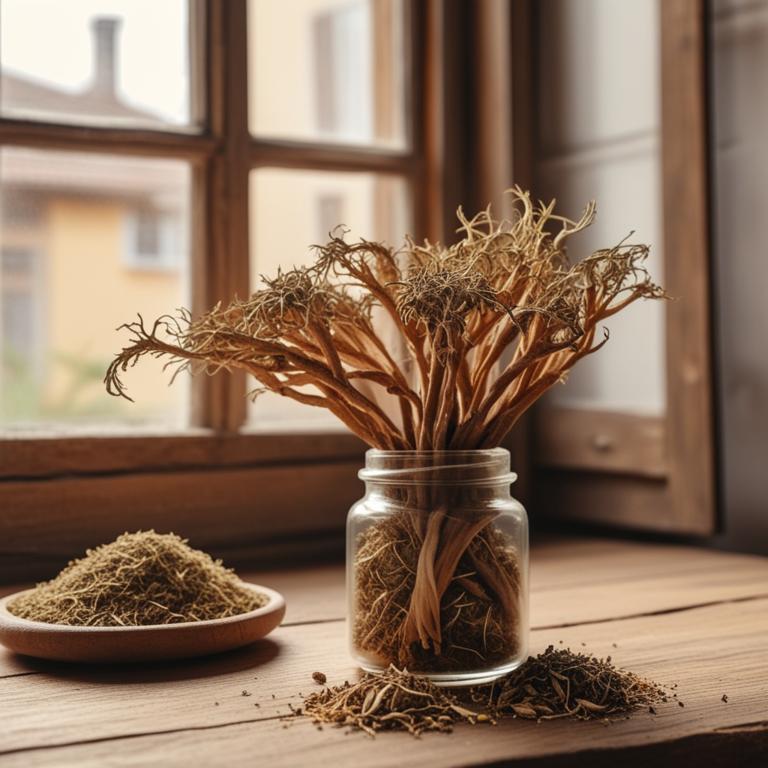
Ulcerative Colitis: Investigating the Role of Medicinal Herbs and Preparations
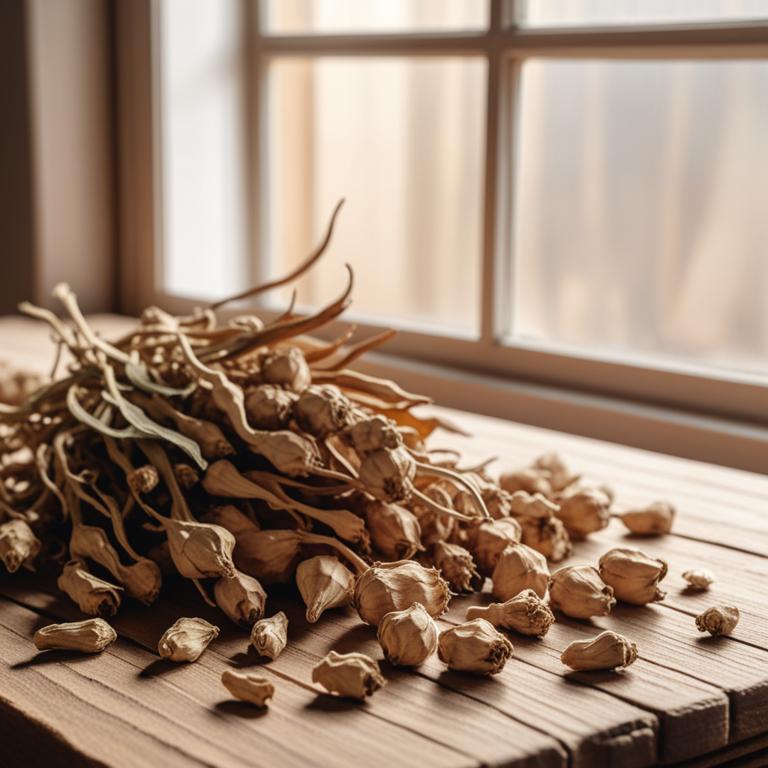
Peptic Ulcers: Causes, Medicinal Herbs, and Herbal Preparations for Pain Relief

Hemorrhoids Causes, Symptoms, and Natural Herbal Preparations

Overcoming Loss of Appetite: Causes, Medicinal Herbs, and Herbal Remedies

Understanding Gastroenteritis: Causes, Medicinal Herbs, and Herbal Preparations
